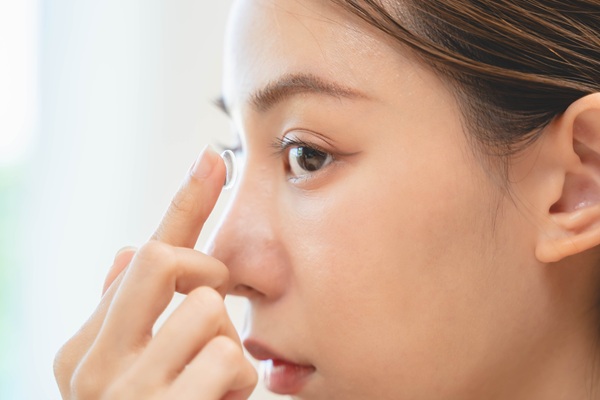Difference Between an Optometrist, Ophthalmologist and Optician

If you are thinking about seeing an optometrist, you should first look at your options. When you understand what this doctor does, you can make the right choice for your eye health. Other medical professionals help patients with their eyes too. So, it is important that you get the relief and treatment you need.
Eye conditions that doctors can diagnose and treat
People depend on their sight at every waking moment of the day. When a condition inhibits a person’s eyesight, it can disrupt the individual’s quality of life. Like any part of the body, eyes can experience problems. Some conditions are minor and require little intervention. Other issues can lead to the most serious consequences such as blindness. Here are some problems for which patients seek a doctor’s care:
- Blurred vision
- Double vision
- Seeing halos
- Eye injuries
- Loss of peripheral vision
The role of an optometrist
This professional can test a person’s eyesight for dysfunctions and abnormalities and determine whether the patient needs corrective lenses. The optometrist can identify certain conditions and can prescribe medication. An optometrist goes to four years of optometry school but is not a medical doctor. Instead, the individual earns a doctorate in optometry. If a patient’s vision is changing, this primary care professional is the right person to see.
An individual can visit an optometrist for a yearly eye exam. Refilling lens prescriptions or medications is possible with an optometrist as well. An individual can also get treatment for mild eye disorders. An optometrist can only handle minor eye conditions. The treatments will only be non-surgical ones. Below are the services that an optometrist provides:
- Proper diagnosis
- Provision of prescriptions for contact lenses, eyeglasses, and any assistive visual device
- Minor eye treatments
- Post-operative eye care
- Yearly eye exams
The role of an ophthalmologist
There are similarities between this doctor and an optometrist. Both doctors can diagnose and treat eye conditions. However, an ophthalmologist has additional training and can practice medicine. This person is also authorized and qualified to perform surgery on the patient’s eyes. Some of these eye doctors will focus on a particular area of the eye such as the cornea or retina. Some may work chiefly with children, while others may research the prevention of certain eye diseases.
An individual can go to an ophthalmologist for eye surgery. Invasive eye procedures are for treating different eye problems, such as cataracts and glaucoma. A patient can see this eye care provider for a routine eye exam or a lens prescription refill. An ophthalmologist can also provide rehabilitation services after the surgery.
The role of an optician
An optician is not a medical doctor and is not required to hold a doctorate. This person has the knowledge and training to design and fit a patient with glasses or contact lenses. This professional cannot diagnose or treat conditions. They do not write prescriptions but use those that they receive from an ophthalmologist or optometrist.
The main work of an optician is to perform customer service at a local eye care center or an optometrist’s office. An individual can see an optician for lens prescription refills, routine eye care, and lens adjustments. This eye care provider cannot check, diagnose, or even treat eye disorders. But answering general eye health questions is part of the job.
Opticians can fit contact lenses and eyeglasses based on the prescriptions of optometrists and ophthalmologists. These eye care professionals assess the prescription and recommend lens coatings, eyeglass frames, and lenses. The optician will always consider the patient’s facial features, occupation, and habits. An optician can use a lensometer to record the current eyeglass prescriptions if the client arrives without prescriptions.
Know the right place
Before moving forward with eye care, patients should understand which individual will provide the right service. People who need surgery should visit with an ophthalmologist. A patient who is having eye pain or experiences vision changes should get help from either an ophthalmologist or an optometrist. To see different contact lens or eyeglasses options, an optician is a good choice.
See the whole picture
When it comes to caring for your optical health, all three of these professionals play a key role. You want to go to the person you know has the tools to help you. Consider your needs and what each person can do to provide relief. If you decide to visit with an optometrist, give one a call today and set up an appointment to evaluate your vision. You will be glad you understood the distinctions between these three medical providers.
Get more information about Texas Optical in Dallas at https://www.texasoptical.net.
Check out what others are saying about our services on Yelp: Read our Yelp reviews.
Recent Posts
For those living with diabetes, undergoing a diabetic eye exam is one of the most important steps in protecting their vision and overall eye health. High blood sugar levels can lead to a range of complications, including conditions that damage the eyes over time. These exams help detect these issues before they become serious, allowing…
Contact lenses provide clear vision and convenience for individuals who prefer an alternative to eyeglasses. However, proper care and maintenance are essential to prevent infections, irritation, and eye damage. Neglecting hygiene practices can lead to serious eye conditions, including corneal ulcers and keratitis. Understanding how to clean, store, and handle contact lenses ensures long-term eye…
Maintaining eye health and preventing long-term issues is the result of consistent and quality vision care. Many people focus on overall wellness but may overlook daily habits that support healthy eyesight. However, taking simple steps each day can protect vision, reduce eye strain, and prevent future complications. By making eye health a priority, it is…
Prescription contacts provide vision correction, comfort, and convenience for those who do not want to wear glasses. However, caring for and wearing contacts takes some getting used to. Learning to insert, remove, and maintain them will help ensure a comfortable and safe experience.Not all contact lenses are the same, and choosing the right pair is…


